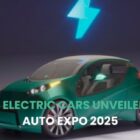Electric vehicles are in the trend these days. More and more people are now moving towards EVs. As the number of electric vehicles continues to rise, it is becoming increasingly important to have an adequate number of EV charging points in Delhi and other parts of the country.
Electronic vehicles have emerged as a sustainable and eco-friendly option in the ever-evolving transportation landscape. As a result, many people are starting to prefer EVs over traditional vehicles. Everyone knows that different types of EVs are available to satisfy customer needs.
Undoubtedly, EV charging points play a crucial role in the increasing number of EVs.
In this post, you’re going to explore different types of EV charging stations in India. In addition, you will also get information about the comparison of those types in terms of speed and compatibility.
Whether you are planning to buy an EV or establish your own EV charging station, this article will surely be a great help to you.
Let’s embark on a journey to explore the types of EV charging points in Delhi.
So, without any further delay, let’s dive in!
Type of Charging Stations
There are two types of charging stations, which are as follows:
AC Chargers
For sure, everyone has heard of Alternate Current, which is a simple and compact way to charge electronic vehicles. These chargers are comparatively slower than DC chargers. Plus, you can install them at home.
Do you know about its mechanism? Here it is: the AC charger offers power to the vehicle’s onboard charger, which converts AC power to DC and charges the battery. However, it takes time to charge batteries. And the approximate time to charge the vehicle completely ranges from 6 to 8 hours. This means an EV owner will have to spend 6 to 8 hours at an AC EV charging point in Delhi to charge their electronic vehicles.
DC Chargers
Are you searching for high-capacity chargers? Then, the DC EV charging points are the best! Yes, it charges electric vehicles more efficiently, and it directly delivers DC power to the vehicle’s battery.
In addition, the DC EV charging point in Delhi charges faster compared to AC chargers, which means it charges electronic vehicles in less time. Also, this type of charger is suitable for public charging stations, including those inside cities and highways.
Four Main Types of EV Chargers
Have you heard about charging guns? It is crucial for every electric vehicle charging system, and it is used to transfer power to the EV from the power grid. Apart from the AC and DC EV charging points, there are 4 more classified groups based on charging guns. So, let’s explore them.
Type 2 chargers: Type 2 chargers work with three-phase or single-phase input power systems. It manages input power between 3.3 KW and 43 KW with a 400-volt AC supply. These two chargers are ideal for home use and are prominent in Indian markets.
Speed and Compatibility: AC charging systems are more compatible with Type 2 chargers and CCS-2 plugs. Well, discussing charge speed, it is comparatively slow.
Combined Charging System, or CCS
CCS is an electronic vehicle’s rapid-charging connector. This EV charging point in Delhi is mostly utilized at public charging stations. Combined charging systems provide power supplies from 50 to 350 KW, and as an electric vehicle owner, you can expect around 75 miles of charge within 30 minutes.
Speed and Compatibility: It supports either AC or DC charging and holds charges up to a maximum of 350 kW. Thus, CCS is a high-speed charger that charges and covers the maximum speed limit.
CHAdeMo Charger: CHAdeMo EV charger allows handling DC-fast charging up to 62.5 KW. However, CCS is more versatile than CHAdeMo, so people are opting for CCS comparatively. On the other hand, the CHAdeMo EV charger is the widely accepted fast-charging system in many countries.
Speed and Compatibility: When speaking about its speed, the CHAdeMo EV charging point in Delhi can charge up to 80% of electronic vehicles within an hour. So that electronic vehicle users can reach up to 120 kilometers.
GB/T Charger: A GB/T type of charger is used for DC charging, and the Indian government has advised using it under the Bharat DC 001 Standard. A government agency, EESL Energy Efficiency Services Limited, installed GB/T charger and gets output for 10–15 KW. Moreover, it is the most important EV charging point in Delhi, which makes it more accessible for every electric vehicle owner.
Speed and Compatibility: GB/T chargers are compatible with every standard J1772 charging port on electric vehicles. Also, it allows fast charging up to 250 KW and uses different and larger connectors for efficient charging.
On the whole
Finally, yet importantly, the EV charging point in Delhi is an evolving and diverse landscape that every electronic vehicle owner requires. I hope, you get an idea about emerging electronic vehicles and their comparison between compatibility and speed. EV charging stations are a great business option for people who are planning to start a business. And ElectriVa can help you in your endeavor.
How Can ElectriVa Help?
ElectriVa is a leading EV Charging Point Operator. We aim to establish the most extensive and high-speed EV Charge Point Network in India. We utilize cutting-edge infrastructure operated through unmanned and automated systems based on IoT technology. We power our charging points with sustainable energy sources and employ data analytic tools to promote the expansion of clean mobility.
At ElectriVa, we aim to provide a seamless and user-friendly experience for electric vehicle users, making their journeys in India easy, convenient, and readily available. We provide a range of charging stations, including both AC Charging Stations and combined AC & DC charging stations.



